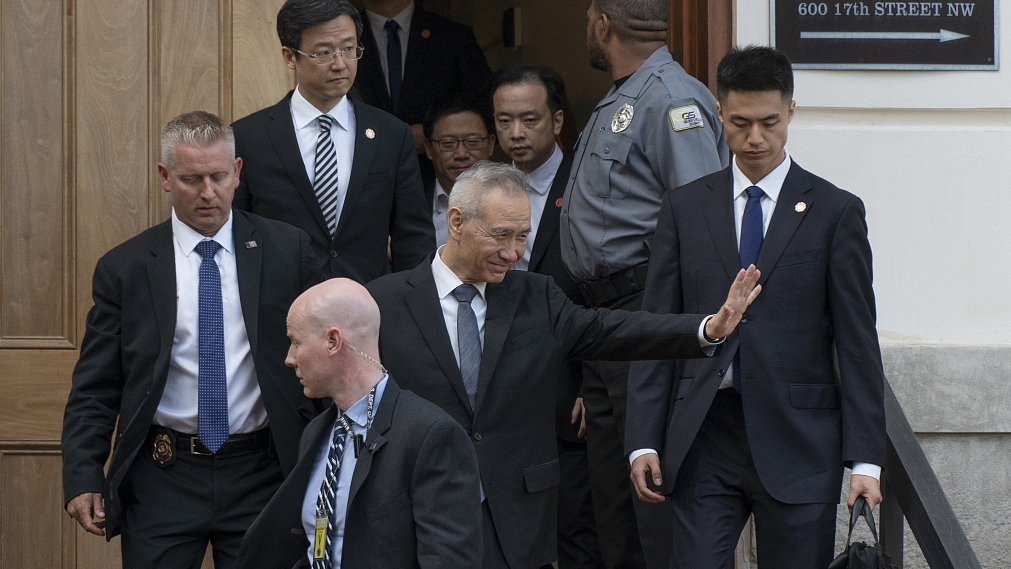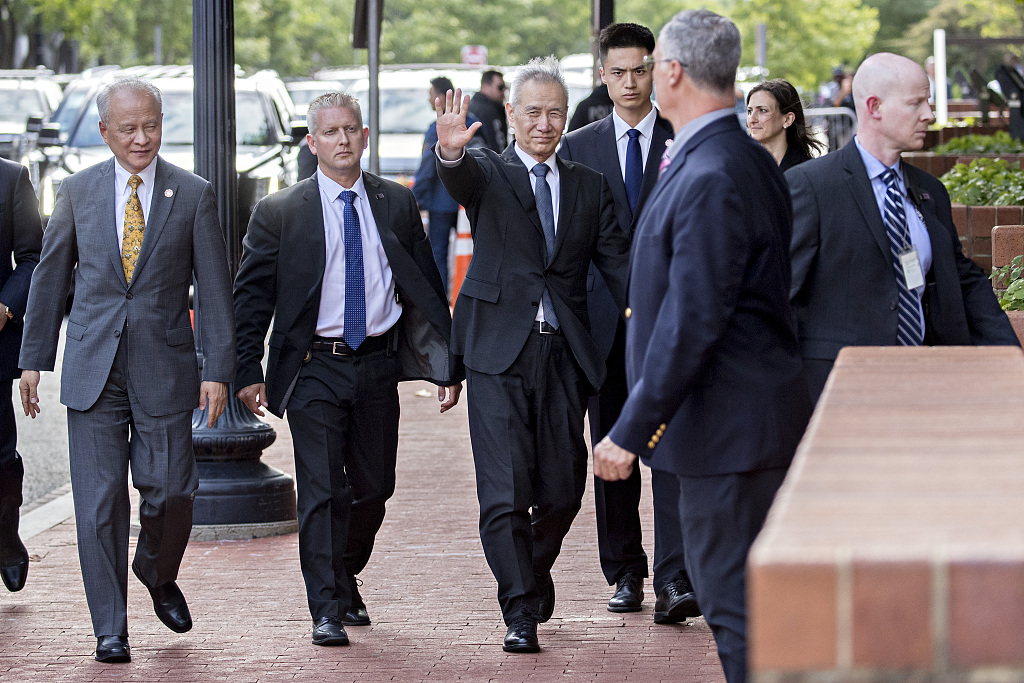
Opinion
13:58, 13-May-2019
A balanced agreement is needed to end the trade war
Kong Qingjiang & Zhou Weihuan

Editor's note: Kong Qingjiang is the Dean of the School of International Law, China University of Political Science and Law. Zhou Weihuan is Senior Lecturer and Member of the Herbert Smith Freehills China International Business and Economic Law (CIBEL) Centre, Faculty of Law, University of New South Wales, Sydney. The article reflects the authors' views, and not necessarily those of CGTN.
On May 10, hours before the 11th round of U.S.-China trade negotiations was going to start, the U.S. raised tariffs on 200 billion U.S. dollars' worth of Chinese imports from 10 percent to 25 percent.
While the U.S. side accused China of reneging on commitments, China felt it was wronged. Indeed, no deal can be spoken of before it is finalized. And if there is no deal reached yet, there are no commitments China could have reneged upon. Moreover, from a legal point of view, it is perfectly legitimate for a party to clarify or confirm its positions which might be misunderstood or unresolved at the negotiation table during the negotiation process.
The U.S.' accusation is also unfounded and has been firmly rejected by China. In fact, China has taken a number of significant actions apparently in response to the U.S. requests, even before a final deal becomes foreseeable. A well-known example of this is China's recent overhaul of its foreign investment regulatory regime to provide not only enhanced market access for foreign investment but also increased protection for intellectual property rights of foreign investors.
While China has been taking steps aiming to further cooperation and secure a positive outcome, the U.S. has chosen to escalate its unilateral trade sanctions against China, thereby continuing its confrontational approach in the bilateral negotiation as it has successfully used in forcing the renegotiation of the North American Free Trade Agreement.

Liu He, China's vice premier, center, waves while arriving at the Office of the U.S. Trade Representative in Washington, DC, U.S., on Thursday, May 9, 2019. /VCG Photo
Liu He, China's vice premier, center, waves while arriving at the Office of the U.S. Trade Representative in Washington, DC, U.S., on Thursday, May 9, 2019. /VCG Photo
Such sanctions, however, are likely to cause more problems than it may solve. The U.S.' continuing flagrant disregard for multilateral trade rules would further weaken the confidence of other WTO members in multilateralism, which would add fuel to the ongoing crisis at the World Trade Organization. It would also be counterproductive as it is likely to cause China to take similar action instead of giving up on its fundamental interests. It could also derail the trade talks that both parties have worked on for months.
Despite the U.S. hostility, the Chinese side remained willing to continue the talk. Vice Premier Liu He, the Chinese head negotiator, brought a big team to Washington seeking to bring the negotiation back on track. In his 26-hour stay in Washington, Liu took the opportunity to explain China's stance to the USTR Robert Lighthizer and the U.S. Secretary of Treasury Mnuchin, and to the media.
Liu successfully conveyed a message that China was sincere in trade talks and disagreed with the U.S.' allegation against China. Although a deal was not reached this time, Liu portrayed the latest talk in Washington as “constructive.” President Trump echoed Vice Premier Liu in describing the 11th trade talk as “candid and constructive.”
It might be too much to expect that the Trump administration is to set aside the punitive tariffs which came into effect on May 10. It would suffice if he and his aides could finally understand that an escalation of the trade war between China and the U.S. is not in the interests of either country and the U.S. should set aside their obsession with the brinksmanship strategy for trade talks.
The next round of trade talks will be held in Beijing. It instills a hope of a well expected deal which contains meaningful terms and conditions and a balanced approach to the implementation of a potential deal.
However, another important thing for the Trump administration to understand is that a final deal would not be possible if it is not reciprocal or overly intrusive. Rather, a deal must be mutually beneficial for the people of both countries and must not unduly impair China's capacity to pursue its fundamental economic, political and social interests.
(If you want to contribute and have specific expertise, please contact us at opinions@cgtn.com.)

SITEMAP
Copyright © 2018 CGTN. Beijing ICP prepared NO.16065310-3
Copyright © 2018 CGTN. Beijing ICP prepared NO.16065310-3